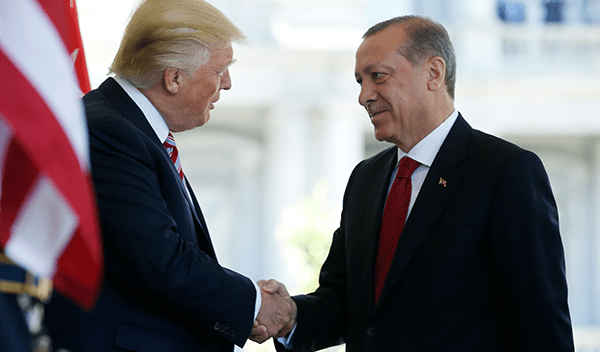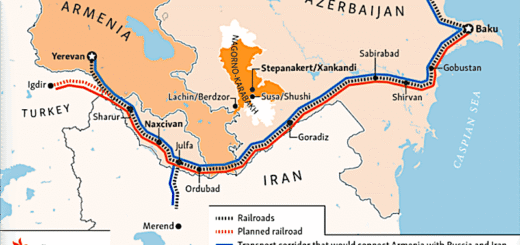Trump’s Love Affair with Erdogan Will Define His Legacy

On September 19, 2025, President Donald Trump announced he would host his Turkish counterpart Recep Tayyip Erdoğan at the White House. “We are working on many Trade and Military Deals,” he wrote, adding he expects also to conclude an F-35 deal soon.
Trump may believe his meeting with Erdoğan will cement his legacy as a peacemaker. The two will discuss Israel and Gaza, Syria, Ukraine, and Trump’s desire for an Armenia-Azerbaijan peace deal. Trump is right that the meeting will cement his legacy, but not in the way he believes.
Trump is not a student of history, nor did he pay much attention to politics in his early years.
He was only 37-years-old and focused on building his first casino when, in December 1983, President Ronald Reagan first dispatched Donald Rumsfeld, President Gerald Ford’s former chief of staff and Defense Secretary, as a special envoy to meet with Iraqi President Saddam Hussein in Baghdad.
There was an active debate in Washington about the Iraqi leader. Many political leaders contrasted Saddam with Iranian leader Ayatollah Ruhollah Khomeini and believed the Iraqi leader to be a moderate.
Nizar Hamdoon, Iraq’s ambassador in Washington, furthered that deception by seeking to charm American Jewish leaders with embassy parties and talk of peace, much as the Azerbaijani and Turkish ambassadors do now.
Many in the U.S. business community also promulgated the “Saddam is a moderate” lie in order to push energy and military trade over sanctions on Saddam.
Deputy Secretary of State Lawrence Eagleburger told a visiting Iraqi official that Washington’s condemnation of Iraqi chemical weapons use against Iranians and Kurds was routine and should not be taken too seriously.
When some officials raised alarms about the combination of lax export controls and Iraqi nuclear ambitions, George Shultz and Caspar Weinberger, respectively the secretaries of State and Defense, overruled them even though the Defense Intelligence Agency had concluded that Iraq would “probably pursue nuclear weapons.”
Rumsfeld again flew to Baghdad to meet Saddam and deliver a message from Reagan. The State Department was effusive. “His [Saddam’s] remarks removed whatever obstacles remained in the way of resuming diplomatic relations.” Rumsfeld recalled, “I began to think … we might be able to persuade the Iraqis to lean toward the United States and eventually modify their behavior.”
The Reagan administration began issuing export licenses for high-technology and dual-use goods. The handshake between Rumsfeld and Saddam would become an embarrassment just six years later when, in the middle of the night, Saddam ordered his army to invade Kuwait.
What Reagan and Rumsfeld did not understand is that the State Department can indulge in wishful thinking and lobbyists for U.S. arms manufacturers and fighter jets can spin, but neither changes reality: Dictators who embrace malign ideologies do not easily forfeit them or abandon their agendas for the sake of a handshake or photo-op.
Trump should take solace. He is not the first U.S. president to crave a Nobel Prize who fell for Erdoğan’s charms and flattery. The Turkish leader played off Barack Obama’s ego and naivete as well.
Erdoğan flatters U.S. presidents and, Democrat or Republican, they fall for it. Erdoğan and his team assess U.S. presidents. They see them as naïve and calculate how they can best leverage them.
Trump may take Erdoğan at his word, but Erdoğan does not believe he must keep his word to a Christian or, for that matter, anyone who does not follow his narrow Muslim Brotherhood interpretation of Islam.
Trump thinks he can strike a deal on the Halki seminary, but the second Trump dies or leaves the Oval Office, Erdoğa will void it. Nor will Erdoğa think any more about confiscating Trump family properties than he has about his political opponents. Rather, the minute Erdoğan boards his private jet home, he will laugh and mock Trump and the stupidity of Americans who spend billions of dollars crafting advanced stealth jets, only to allow countries like Turkey to reverse engineer their technology.
Given Erdoğan’s history of territorial conquest against Cyprus, Syria, and Iraq; his threats against Greece, Armenia, and Israel; and his sponsorship of terrorism against Jews, Christians, and Hindus, it is certain he will use the advanced weaponry Trump promises to sell him against U.S. allies if not Americans themselves.
Just as the Saddam-Rumsfeld handshake became emblematic of White House naivete and permanently stained Rumsfeld’s career, so too will Trump’s embrace of Erdoğan define Trump’s national security legacy. Make no mistake:
Turkey will use its F-35s against Israel and/or Greece. It will launch a war of aggression that will make the United States return to the region, much like Saddam did against Kuwait.
Trump should be under no illusions that he will be Making America Great Again; rather, by suckling upon the Turkish leader’s bank accounts, Trump will effectively be murdering scores of Americans and greenlighting Turkish-backed terrorism from Israel to India. Some stains are impossible to wash away.





